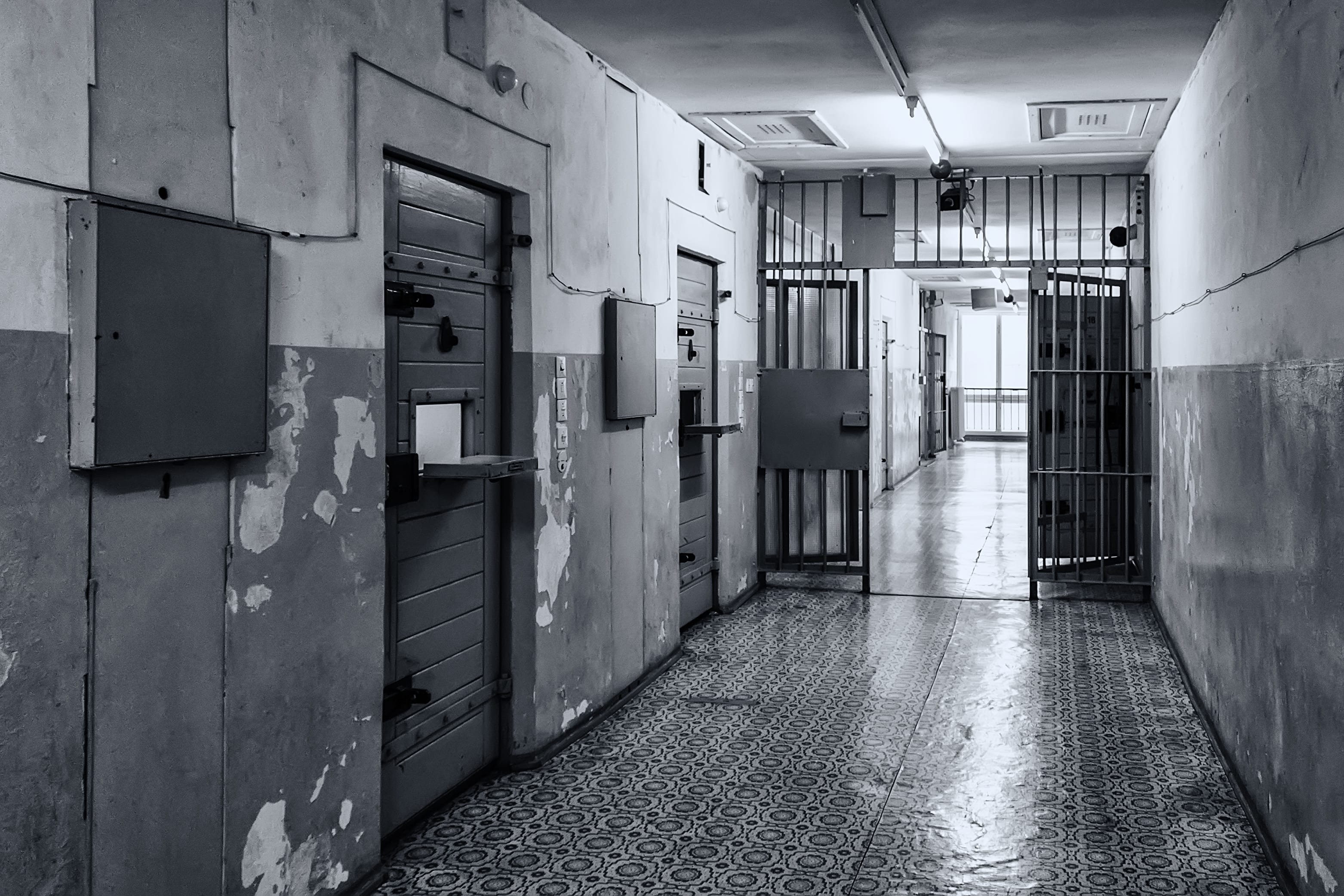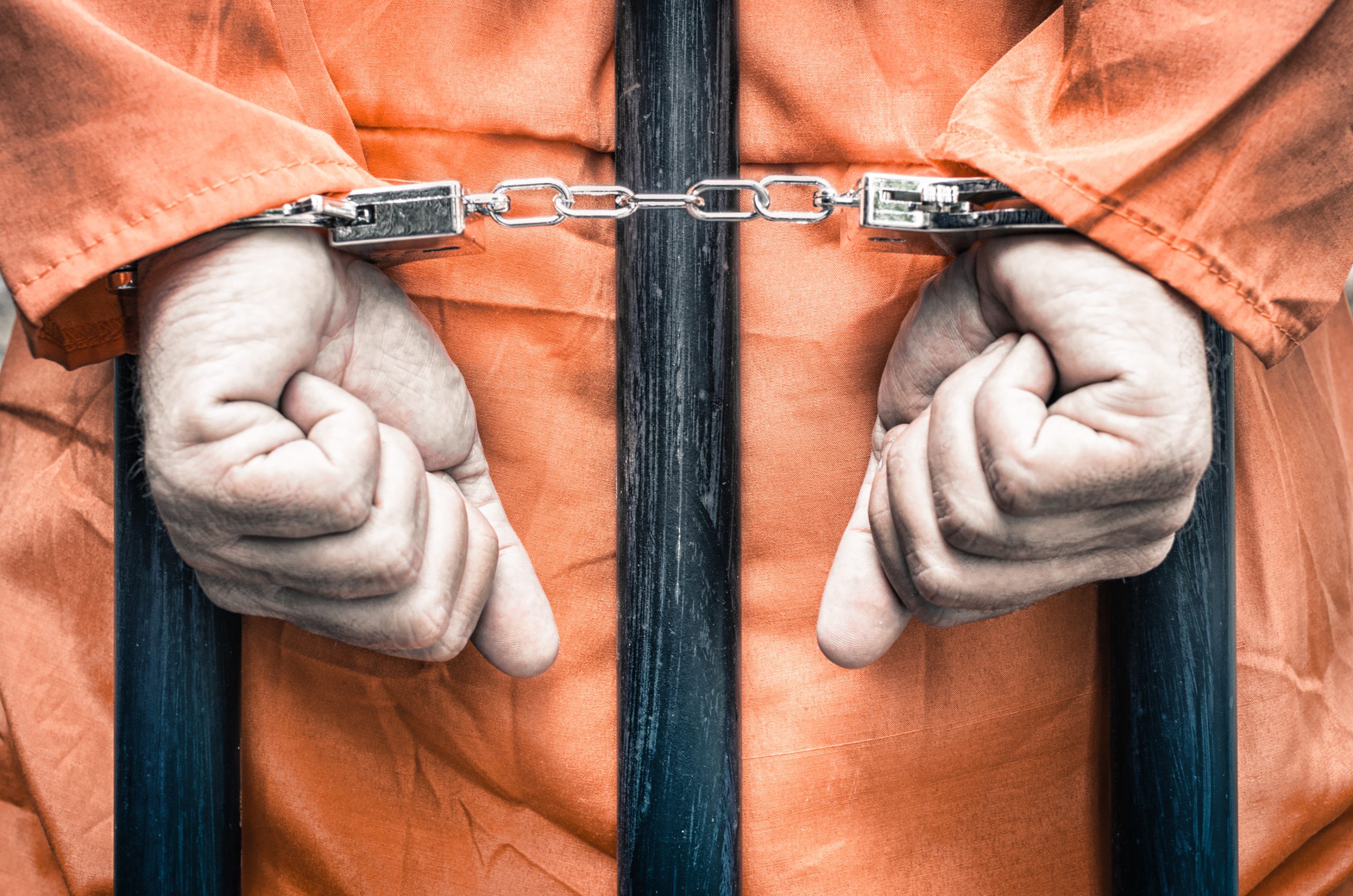“I have no other alternative but to sentence you to the Department of Corrections.” As the bailiff ushered me through the courthouse to the back of the room, I thought to myself, “Did the Judge sentence me to three years in prison and two years of probation?” Before I could even complete my train of thought, the bailiff said, “May God be with you.” I looked into his eyes, speechless. May God be with me? “Where are these people about to send me?” I wondered.“ “I’m a college kid,” I said to myself. And then I realized I was wrong. I was a college kid until the gavel came crashing down with a prison sentence, shattering my hopes and dreams that summer day in May 2001.
Was this justice?
I traded my belt for shackles and handcuffs. I used my shackled hands to hold my slacks up so my size too-big pants wouldn’t fall to the ground. As I sat in the holding cell awaiting my ride to the county jail, I wondered how this had happened to me. I was the young kid that loved school! I was in the young astronauts’ program, a McKnight Achiever, a member of Future Business Leaders of America, and named to Who’s Who of American High School Students.

Yes, I had played a role in an unfortunate series of events that led to my arrest. But couldn’t the judge see that I was a “good” kid that made a “bad” decision? My public defender had told me to wear a suit, and I did. He told me the PSI (Pre Sentencing Investigation) came back favorable. The PSI said I might get two years of house arrest and a few years of probation, or a couple of months of jail time followed by probation. Both of those options would have allowed me to finish my degree while paying my debt to society.
Did the judge see the alternatives to prison time for a first offense, or did the other options not apply to me? I remember writing a seven-page paper in one of my classes about the disparity in sentencing. Black people were sentenced seven times harsher for the same crime committed. Could that have been happening to me? Was I a political prisoner? If politics created a space for me to be over sentenced, technically, I was a political prisoner. All of those thoughts were in my mind as I awaited my ride to the jail.
A Different Type of Law on the Compound
I was supposed to be walking across the stage, obtaining a bachelor’s degree in economics from Florida A&M University; instead, I was now walking across the prison yard. I went from a loving environment to a war zone almost overnight. There wasn’t a manual on how to survive (mentally, physically or emotionally) in prison. I was broken on purpose.
Daily, we were told how useless we were, how we held no value and how no one cared about us. I learned rather quickly that Chapter 33 was the operational manual, but there was a different law of the land on the compound. If I wanted to survive somehow, I had to learn quickly and make adjustments. At the beginning of my “bid,” I was hurt and angry, with no outlets and very few people to talk through those issues. The first year was the toughest; removed from society as I knew it, including my family and friends. However, the second year, I realized that no one was coming to save me. I had to keep myself safe. The air was different on the inside, the sun lit up each day differently and the grass barely grew.
Rehabilitation … or punishment?
After being shown such cruelty, reduced to nothing, how could I save what was left of my esteem? My friend gave me a book and told me to read it. In the books’ pages, I could escape to a place of freedom and relative peace, and then knowledge.
Meanwhile, the correctional institution I called home wasn’t about corrections or rehabilitation. My prison sentence was about punishment. Ninety percent of people sentenced to prison are at some point released into society. I didn’t understand why the system wouldn’t position them to add value upon their return. My two friends and I spent the majority of my third year preparing me for my return. I had to think about housing, food and employment in the free world. When I was released, my guys told me not to forget but never to come back.
Release, Employment and Education
When I was released, I thought since I paid my debt, society would forgive me. I was wrong. Society punished me perpetually because of my conviction. The three things that would lower my chances of returning to prison were withheld from me: housing, employment and civic participation. I ended up finding a job paying seven dollars an hour.
I knew I was more valuable than that but didn’t know how to break through. Due to the stigma of my conviction, it proved challenging to find a mentor. I remembered the times on the yard walking the track, the promises I made to the fellas and the books we read. Above all, the question was how could I add value to myself and the marketplace?
Consequently, I decided to finish my college degree. In 2008, I obtained my BBA from Edward Waters College. Building on my momentum and remembering the promise of telling the story of my conviction, I created a publishing company to release Prisoner to Poet: Thoughts of an Incarcerated Soul. Then it was time to give back.

Volunteering and the Right to Vote
I began volunteering, and ultimately leading campaigns on issues that impacted returning citizens (a person with a felony conviction), such as rights restoration, fair hiring practices and fair housing policy. After winning Florida’s Amendment 4 in 2018, it was time to push the envelope even further.
However, after 15 years of freedom, I was still among the people plagued with the question, “Have you ever been convicted of a felony?” whenever I applied for a job. In an age where disparities in the criminal justice system are highlighted in reports, on TV, the internet, and on handheld devices, returning citizens like me have obstacles to overcome. Now, I’m fully committed to laying a pathway for others to turn their lives around in spite of the challenges we must continually overcome.






